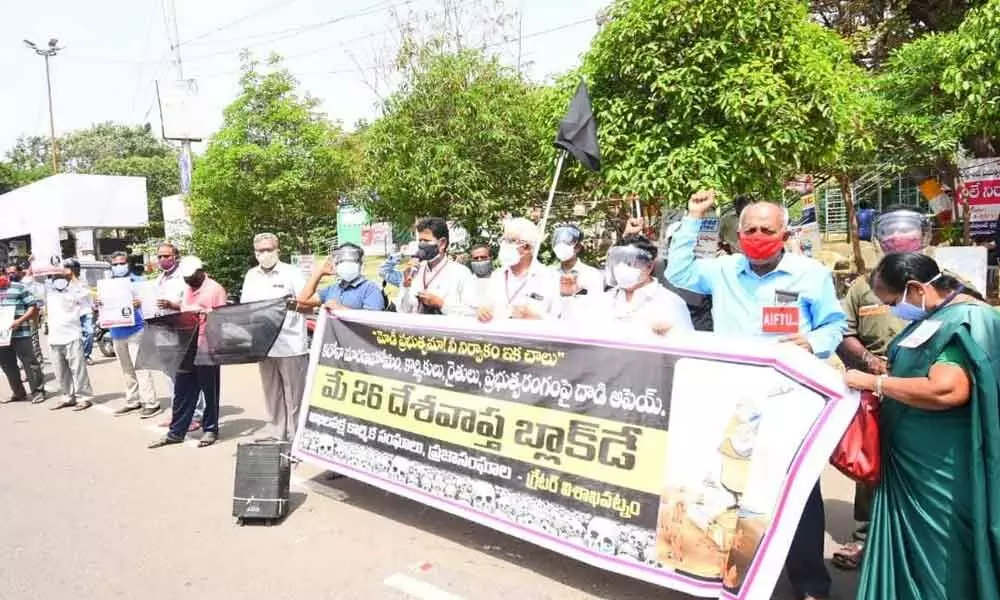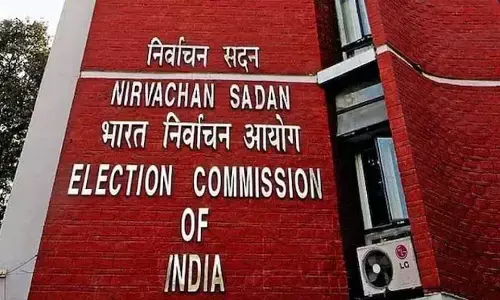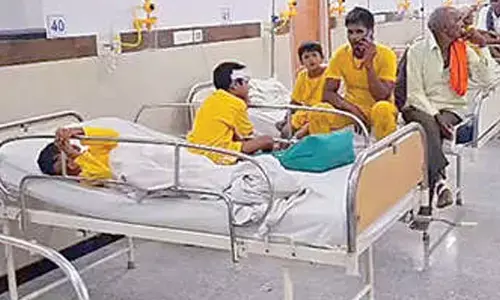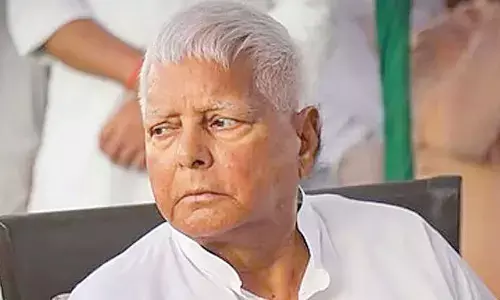Visakhapatnam: Trade union leaders express solidarity with farmers

CITU activists led by their State president Ch Narasing Rao staging a protest marking 'Black Day' in Visakhapatnam on Wednesday
CITU State president Ch Narasinga Rao said the collective fight of the trade unions and farmer unions will continue until the Central government withdraws corporatisation principles.
Visakhapatnam: CITU State president Ch Narasinga Rao said the collective fight of the trade unions and farmer unions will continue until the Central government withdraws corporatisation principles.
Extending support to the 'Black Day' observed by 'Samyukt Kisan Morcha' here on Wednesday, the CITU representatives voiced their views against the BJP's policies.
Speaking further, the CITU State president demanded that the Union government repeal the three farm laws against which various farmer associations and unions have been protesting relentlessly for the past six months.
Holding black flags, a protest was held at Gandhi statue near GVMC under the aegis of the trade unions and people's organisations.
Speaking on the occasion, Narasinga Rao demanded that the three farm laws should be repealed as they are only initiated for the benefit of the corporate entities.
He said Modi's government had brought in anti-farmer laws during the pandemic-induced lockdown period.
Further, the union leader alleged that the laws will create food shortages, increase food prices and the burden on people.
He demanded that the government provide better medical care and financial assistance to the people in the hour of crisis.
Meanwhile, a protest was also organised at the Congress party office. City Congress president S Venkateswara Rao, State spokesperson V Srinivas, PCC secretary S Sudhakar and other leaders wore black badges as a mark of protest on the 'Black Day'.
They said the Union government did not care about the farmers who were the backbone of the country and wondered about the level of attention the common people could possibly receive.










